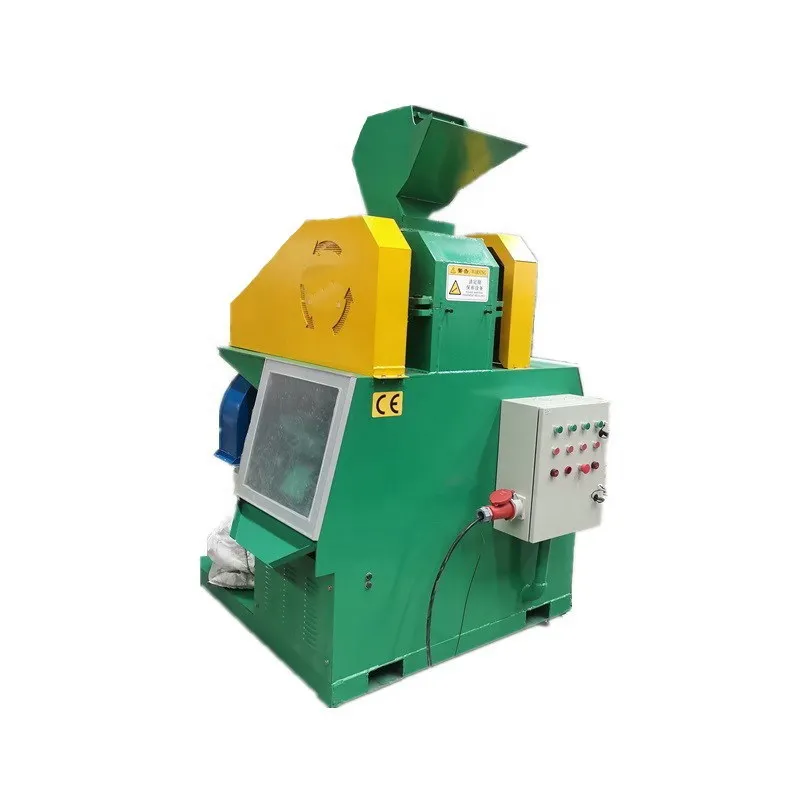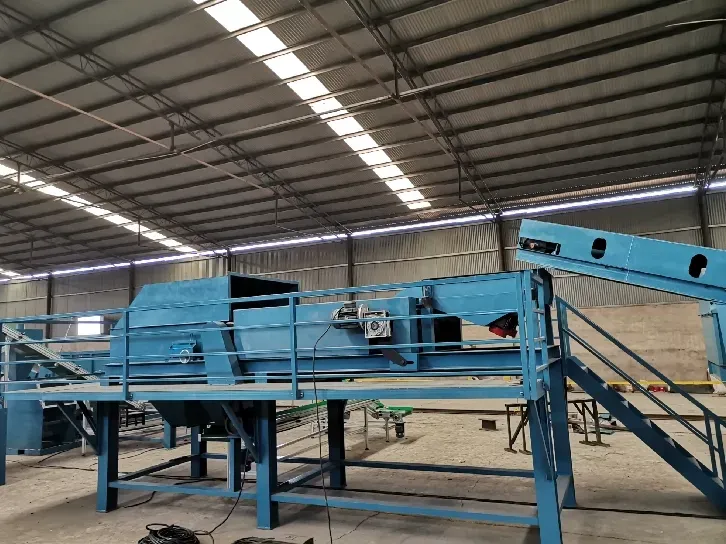Shred scrap metal refers to fragments of metal that are by-products of industrial processes, decommissioned vehicles, or obsolete domestic equipment. Characterized by its complex blend of different materials, the metal is shredded and sorted into types that can be recycled or repurposed effectively. Understanding shred scrap metal, its sources, and the recycling process is crucial for businesses and individual customers looking to optimize both their ecological footprint and financial returns.

Shred scrap metal finds its origins in various sectors. The automotive industry contributes significantly due to its continuous cycle of vehicle creation and disposal. Old cars are dismantled, and their metal components are systematically shredded. Additionally, construction and demolition sites produce notable amounts of metal waste, which after being shredded, contributes to the metal recycling economy.
For businesses, handling shred scrap metal involves specific expertise and infrastructure. Metal recycling companies utilize gigantic shredders capable of processing large volumes of scrap swiftly. These machines can crush cars, appliances, and other metal-rich goods into manageable pieces. This shredded material is then passed through elaborate separation processes, which include magnets and air jets, to segregate ferrous metals (those containing iron) from non-ferrous metals (such as aluminum and copper).

The environmental benefits of effectively recycling shred scrap metal are compelling. Recycling reduces the need for virgin ore mining, which is an energy-intensive process with significant ecological impacts. Also, it prevents metal waste from occupying landfill space, thus reducing soil and water contamination risks due to metal leaching. For industries, recycling promotes sustainability, elevating their corporate responsibility credentials, which resonates well with the environmentally conscious consumer base.
Economically,
shred scrap metal is an asset. Businesses that supply this type of scrap to recyclers often receive financial compensation, turning waste into a revenue stream. Furthermore, using recycled materials often proves cheaper than procuring new metal, as it bypasses the costly mining and initial processing phases. This cost-saving is particularly advantageous in industries like construction and manufacturing, where material costs significantly impact profitability.
what is shred scrap metal
Yet, handling shred scrap metal effectively requires adherence to quality standards to maintain its value and ensure safe recycling practices. Companies must implement meticulous quality control measures to avoid contamination that can degrade the value of shredded metal. For instance, when scrap is tainted with hazardous materials or non-metal substances, its usability in creating high-grade recycled products diminishes.
Moreover, the rapid evolution of recycling technologies has fostered a more proficient processing of shred scrap metal. Innovations such as sensor-based sorting systems enhance the efficiency of separating metal types, thereby improving the purity of recycled output. Companies adopting these cutting-edge technologies not only maximize their processing efficiency but also enhance the quality of their materials, thereby fetching higher market prices.
Trust in the handling and processing of shred scrap metal is bolstered by adherence to international environmental and safety standards. Recognized certifications, such as ISO 14001 for environmental management, authenticate a company's compliance with best practices and underscore their commitment to sustainable operations.
For individuals considering the sale of shred scrap metal, knowledge of market trends and metal prices is imperative to achieve optimal financial returns. Engaging with reputable recyclers who offer transparent pricing and clear expectations regarding material quality and quantity can significantly enhance individual trust and security in transactions within the scrap metal marketplace.
In conclusion, shred scrap metal embodies both an opportunity and a responsibility. From a business standpoint, possessing the right expertise, infrastructure, and commitment to quality can lead to environmental and economic benefits. The ongoing advancements in recycling technology only amplify these opportunities, promising a sustainable and lucrative future for shred scrap metal within the global economy. With an informed approach, stakeholders can effectively transform this challenging waste stream into valuable resources, aligning with eco-friendly practices while driving profitability.



